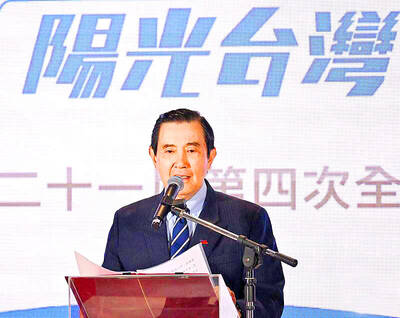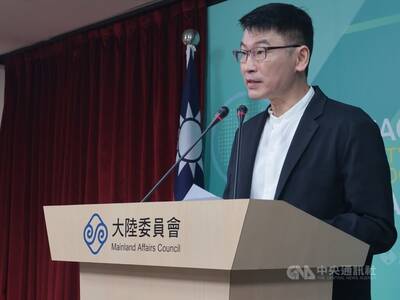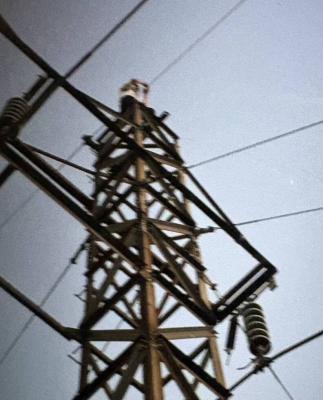The National Space Organization’s (NSPO) cubesat program has shed light on a nascent industry of small satellite launch service suppliers in Taiwan.
With the global space industry shifting its focus to smaller satellites, many domestic manufacturers supplying satellite or communications components have become part of the global supply chain, while launch services are newer areas for Taiwan.
The NSPO in 2017 commissioned three university teams to make cubesats and three companies to facilitate their launches as part of the government’s effort to foster a “new space” industry.
Odysseus Space negotiated the launch of YuSat, developed by National Taiwan Ocean University and local companies, while HelioX Cosmos negotiated the launch of the Ionospheric Dynamics Explorer and Attitude Subsystem Satellite (IDEASSat), made by National Central University. Both companies worked with a foreign counterpart — ISILaunch Service in the Netherlands.
YuSat and IDEASSat were launched by a SpaceX Falcon 9 rocket on a rideshare mission on Jan. 24.
NutSat, developed by National Formosa University, is set to be launched in June, which is being facilitated by Gran Systems in partnership with US company Momentus.
YuSat and IDEASSat were originally to launch on India’s Polar Satellite Launch Vehicle in summer last year, but due to India’s lockdown amid the COVID-19 pandemic, service suppliers switched to SpaceX after its rideshare program became available, HelioX founder Bill Chang (張懷謙) said.
Changing a rocket means satellite developers have to conduct new simulated tests to refit their satellites to a different set of rocket parameters, he said.
Before and during the launch, the service suppliers had to constantly check the launch schedule and satellite status, while coordinating technical support for satellite developers, he said.
A launch-service supplier must have good international relations to secure an optimal launch space and schedule at efficient costs, Gran Systems chairman Ke Kuang-han (葛廣漢) said.
In the course of finding a rocket, a Russian service supplier proposed the lowest price among all international competitors, but it ultimately could not assist with the launch of Taiwanese satellites due to political reasons, Ke said.
Another challenge for the service providers was acquiring frequency-use approvals before launch.
As Taiwan is not recognized by the UN and its International Telecommunication Union, service providers resorted to workarounds through the International Amateur Radio Union (IARU) to acquire amateur frequencies for the cubesats, Odysseus Space chief operating officer Julien Hennequin said.
During the process, company members tapped some of their contacts at the union, from the Netherlands for instance, but most of the applications were made by the Chinese Taipei Amateur Radio League, he said.
On its Web site, the IARU lists the league and the China-based Chinese Radio Amateurs Club as member societies.
League chairman Randson Huang (黃文杰), who had helped the three cubesat teams apply to the National Communications Commission and then the IARU, said the international process took nearly eight months due to negotiations with other applicants.
Huang is also the general manager of Letscom International, which helped with satellite integration of YuSat.
The league in 1994 negotiated with its Chinese counterpart over amateur frequency use, after which the IARU agreed that amateur frequencies under the symbols of BV, BN, BX and certain others could be allocated for Taiwan, he said.
Although the union classifies Taiwan as part of China, the three cubesats are without a doubt launched and owned by Taiwan, he said.
If they had protested the nation’s reference name, they could not have obtained the frequencies, he said, adding that the league’s use of “Chinese Taipei” is also a compromise.
The negotiation channel is workable because the three cubesats are for educational purposes, not commercial use, Huang said, adding that he could not do the same thing for commercial satellites.
While the government hailed the cubesat program as marking the nation’s progress in the “blue ocean” of the space industry, the three launch service suppliers said they made little profit from the program and are managing to “survive” through different ventures.
The launch service market in Taiwan is too small to support three suppliers, said Ke, who in 2008 founded Gran Systems, which used to rely on semiconductors and medical equipment before it turned to new space services.
With fewer than 10 employees, the company last month closed one of its offices at the Southern Taiwan Science Park to save operational costs, Ke said.
Almost all of the profits it has made were devoted to research and development, Ke said, citing as an example that his company produces test pods for satellite developers for prelaunch tests.
The company also promotes space education and is exploring biological experiments in space, while it has plans to develop its own cubesats, he added.
Chang, who founded HelioX in 2018, said the NSPO program offers a good opportunity for growth for his company, but it must survive when no similar project is in sight.
As space activities across Asia boom, Taiwan would not be HelioX’s only market, Chang said, adding that his company last year became the official representative of Space BD in Taiwan.
Space BD, a leading Japanese space start-up, is a primary contractor for the Japan Aerospace Exploration Agency’s initiative on designing lunar transportation, which would be open to Taiwanese teams as well, Chang said, adding that he hopes to invite local scientists and industries to join the lunar exploration program.
While Taiwan’s space developments over the past few decades were mostly led by the government, the private sector should drive the changes from bottom up, he said.
Odysseus Space was founded in 2016 with chief executive officer Jordan Vannitsen’s connections at National Cheng Kung University’s Department of Aeronautics and Astronautics, where he studied for his doctorate. He and other cofounders also gained experience working with the European Space Agency.
In 2019, the start-up shifted most of its operations to Luxembourg, including their development of laser communications technology. It has 10 employees in Europe and two in Taiwan.
Odysseus plans to hire more employees in Taiwan, but it is difficult because many qualified candidates tend to work for semiconductor firms, which offer better salaries, Hennequin said.
“A lot of people are talking about space in Taiwan because it’s sexy and there is a lot of things going on,” he said, adding that they might have been too optimistic about founding a company when many things were not yet ready in Taiwan.
Unlike a business focused on a mass consumer market, where products just need to be cheaper, there are always defense-related concerns and a level of trust in the space industry, making it a protective market in every country, he said.
If the government hopes to foster the local space industry, it must show local companies who are going to be their next customers, or the government should be their first customers and then expand the market, he said.
There is a political willingness to support the space industry, but how to make it a sustainable business needs more deliberation, he added.

‘ANGRY’: Forgetting the humiliations and sacrifices of ‘the people of the Republic of China’ experienced disqualified Lai from being president, Ma Ying-jeou said Former president Ma Ying-jeou (馬英九) yesterday criticized President William Lai (賴清德) over what he called “phrasing that downplayed Japan’s atrocities” against China during World War II. Ma made the remarks in a post on Facebook on the 80th anniversary of the end of World War II. Ma said he was “angry and disappointed” that Lai described the anniversary as the end of World War II instead of a “victory in the war of resistance” — a reference to the end of the Second Sino-Japanese War (1937-1945). The eight-year war was a part of World War II, in which Japan and the other Axis

The Mainland Affairs Council (MAC) yesterday announced a ban on all current and former government officials from traveling to China to attend a military parade on Sept. 3, which Beijing is to hold to mark the 80th anniversary of the end of the Second Sino-Japanese War. "This year marks the 80th anniversary of the end of World War II and the Republic of China’s victory in the War of Resistance [Against Japan]," MAC Deputy Minister and spokesperson Liang Wen-chieh (梁文傑) told a regular news briefing in Taipei. To prevent Beijing from using the Sept. 3 military parade and related events for "united

‘OFFSHORE OPERATIONS’: Also in Dallas, Texas, the Ministry of Economic Affairs inaugurated its third Taiwan Trade and Investment Center to foster closer cooperation The 2025 Taiwan Expo USA opened on Thursday in Dallas, Texas, featuring 150 Taiwanese companies showcasing their latest technologies in the fields of drones, smart manufacturing and healthcare. The Taiwan External Trade Development Council (TAITRA), the event’s organizer, said the exhibitors this year include Hon Hai Precision Industry Co (Foxconn), the world’s largest contract electronics manufacturer; AUO; PC brand Asustek Computer; and drone maker Thunder Tiger. In his opening speech, TAITRA chairman James Huang (黃志芳) said he expected Texas to become a world-class center for innovation and manufacturing as US technology companies from Silicon Valley and Taiwanese manufacturers form an industrial cluster

A 20-year-old man yesterday evening was electrocuted and fell to his death after he climbed a seven-story-high electricity tower to photograph the sunset, causing a wildfire on Datong Mountain (大同山) in New Taipei City’s Shulin District (樹林), the Taoyuan Police Department said today. The man, surnamed Hsieh (謝), was accompanied on an evening walk by a 20-year-old woman surnamed Shang (尚) who remained on the ground and witnessed the incident, capturing a final photograph of her friend sitting atop the tower before his death, an initial investigation showed. Shang then sought higher ground to call for help, police said. The New Taipei